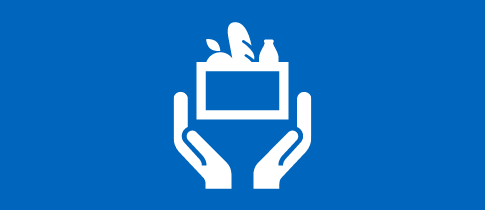Participation
Ending the need for food banks
February 18, 2022 by Jen Swan No Comments | Category Guest blog, Our work, Participation in action, Social Justice
A guest blog from the Scottish Government’s food insecurities team
The Scottish Government has published a draft plan on ending the need for food banks as a primary response to food insecurity. Find out more about how people were involved in its development and what happens next.
The challenge
We all need reliable access to food that keeps us well, for our physical and mental health, as well as the huge social and cultural role that food plays in all our lives. The ability to access food is a right, and is linked to the fulfilment of other rights too.
Household food insecurity is when people worry about affording food – it is driven by insufficient income and is made worse by an increasing cost of living. People sometimes cope with this by doing things like compromising on quality or quantity of food, cutting back on other essentials likes heat, turning to friends, family or local services for help, or going without.
Over the last 10 years, community organisations such as food banks and others have increasingly stepped in to support those who may be struggling. Sharing food is an act of care that brings our communities together, but most people agree that this should always be a choice – something that we take part in because we want to rather than because we have to.
Making a plan
The Scottish Government made a Programme for Government commitment to publish a plan on ending the need for food banks.
This builds on several years of hard work at all levels in Scotland, including the 2016 Dignity Report and work of A Menu for Change from 2016-2019. The plan builds on new ways of working during the pandemic, and links to our tackling poverty and Good Food Nation frameworks.
The purpose of the plan is to re-state our strategy to tackling food insecurity (a human rights approach), and set out what more needs to be done.
This means focusing on tackling the causes of poverty through fair work, social security and helping to manage the cost of living. It also involves working with local services to help strengthen the response to crisis so that cash-based options are in place as the first port of call, alongside money advice to help prevent future need.
Listening to others
Hearing directly from people helps to make better decisions and is central to a human rights approach. We’ve done this in a couple of different ways, working alongside others –
Prior to publication – shaping the draft plan and consultation process. Dr Chelsea Marshall, Senior Policy Officer at Nourish Scotland summed this up:
In August 2021, the Scottish Government invited members of the Dignity Advisory Team to form a direct experience reference group to support the work of the Ending the Need for Food Banks Steering Group. We extended the opportunity to the Govan Community Project’s peer researchers to involve people with experience of the asylum process in the discussions. A group of approximately 13 people participated in four discussions between September and November 2021.
Advisory team members welcomed the opportunity to work directly with Scottish Government officials as the proposals for the new national plan were developed. The Tackling Food Insecurity team provided a safe online space to engage reference group members’ views on what was included in the draft plan, how it was presented and how best to engage the views of other people with direct experience of food insecurity in the consultation process.
Having a series of discussions in this way provided an opportunity to build relationships with group members. The open and constructive format of the meetings gave group members a feeling that their participation was being valued and appreciated, and that their views and time were considered important.
Publication and consultation –
In October 2021, the Scottish Government published a draft plan and launched an online consultation process – over 400 people responded to this. We also ran a series of 10 workshops targeted at reaching people with direct experience of food insecurity and food aid providers.
Next steps
These responses will be independently analysed and will help to inform a final version of the plan which will be published later in the year.
To find out more
- Contact the food insecurities team: foodinsecurityteam@gov.scot
- Read the draft plan on Ending the Need for Food Banks
- Read our statement on food insecurity, poverty and the right to food
- Share the Independent Food Aid Network’s cash-first leaflets
If you or someone you know is worried about affording food or other essentials, please contact the national helpline – this connects callers to sources of local advice and support, including the Scottish Welfare Fund: 0800 111 4000
Scottish Government participation & engagement
Interested in receiving updates and insights into our work to embed good participation and engagement practices across the Scottish Government? Subscribe to the Scottish Government’s participation blog and follow us on twitter @scotgovengage
Tags: consultation, Engagement, food insecurity, participation, policy making, public engagement, scottish government, social justice


Leave a comment